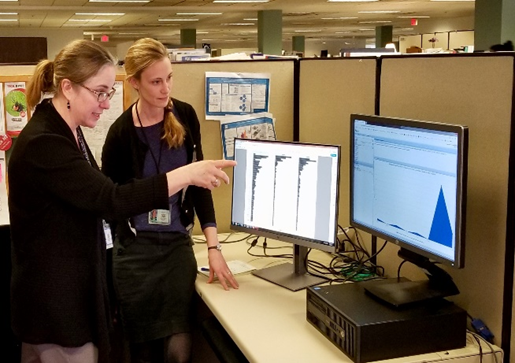Syndromic Surveillance to Monitor Emergency Department Visits during a Synthetic Cannabinoid Overdose Outbreak — Connecticut, 2018
- On August 15, 2018, multiple people collapsed in a Connecticut city park. Media reported that these people had used a drug called K2. K2 is one of many names for synthetic cannabinoids. The health effects of these drugs are unpredictable and can be life-threatening. Within 20 minutes of the first media report, we started to monitor emergency department visits associated with K2 use. This helped us understand how many people were affected. Over the next 48 hours, there were 72 emergency department visits associated with the outbreak. All of the visits were in one Connecticut town.
- We were able to monitor this outbreak by using the Connecticut Department of Public Health syndromic surveillance system. This system gathers data on visits to emergency departments in the state in near real-time. Near real-time data is important for responding to substance misuse. New drugs continue to emerge and patterns of substance misuse can change rapidly.
- The Connecticut Department of Public Health is developing new tools to analyze syndromic surveillance data quickly and in more detail. For example, new automated alerts detect increases in drug overdoses. These tools will inform more effective public health responses to substance misuse.
“This was the first time that the Connecticut Department of Public Health was able to monitor an increase in overdoses as it happened. We quickly identified the size of the outbreak, and made sure that it was not spreading to other parts of the state. In the longer term, these data can help public health departments and their partners more effectively reduce the illnesses and deaths caused by substance misuse.”
– Sydney Jones, PhD, MScPH, EIS Class of 2018
 [PNG - 482 KB]
[PNG - 482 KB]EIS Officer Sydney Jones (right) and epidemiologist Susan Logan review syndromic surveillance data on emergency department visits for suspected synthetic cannabinoid overdose.
CDC Media Relations
(404) 639-3286
media@cdc.gov

Sydney Jones, PhD, MScPH,
EIS Class of 2018
Connecticut Department of Public Health
Education: PhD: UNC, Chapel Hill, Present
MScPH: UNC, Chapel Hill, 2014
BS: University of Texas, Austin, 2010
BA: University of Texas, Austin, 2010
Work Experience: Evaluation Associate, Active Living by Design, Chapel Hill, North Carolina, 2017-Present
Graduate Research Assistant, COMPASS Study, Chapel Hill, North Carolina, 2016-2017
Teaching Assistant, Department of Epidemiology, Chapel Hill, North Carolina, 2016-2016
Administrative Associate, University of Texas at Austin, Austin, Texas, 2011-2012
Conversation and Culture Assistant, Collegi Ramon Llull, 2010-2011
Student Intern and Curriculum Consultant